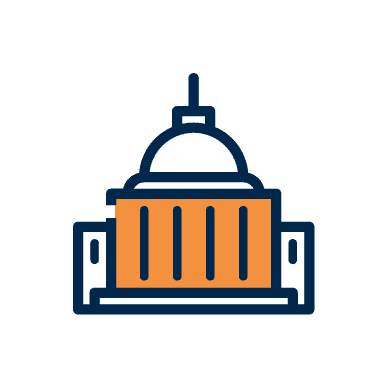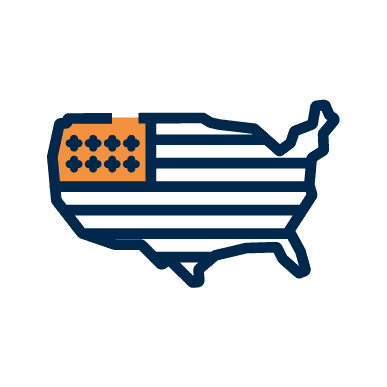As the first vaccines are delivered across the US, we can begin to look forward to a post-pandemic future and resuming routine activities that have been sharply curtailed in 2020. This includes the resumption of the full accreditation and survey activities in the healthcare industry. As noted below, the regulatory survey and accreditation activity since March was initially suspended and reprioritized, followed by the slow reintroduction of survey activity starting in June. With the current surge in COVID-19 cases, a new administration due to assume control in January and the adoption of new survey techniques which may prove to be permanent process improvements, the inevitable resumption of full survey activities by state agencies and accrediting bodies may reflect changes in priorities and process.
On January 31, 2020 Alex M. Azar II, Secretary of Health and Human Services (HHS) declared a Public Health Emergency (PHE) due to the consequences of the Coronavirus Disease 2019 (COVID-19). This PHE has been renewed regularly during 2020 and is currently in effect through January 21, 2021. This PHE status triggers the ability of DHHS to authorize waivers or modifications of certain requirements pursuant to section 1135 of the Social Security Act (the Act). Under section 1135(b)(5) of the Act, CMS was able to prioritize surveys by authorizing modification of timetables and deadlines for the performance of certain required activities. The PHE declaration has been renewed by DHHS through January 21, 2021.
CMS Steps In
CMS took action both before and after the declaration of a PHE to prioritize surveys and inspections to focus on COVID-19 related threats to public health and to free up provider resources from data reporting and submission when such resources were needed to address the PHE:
| Date | Update |
|---|---|
| March 4, 2020 | CMS issued a memo, QSO-20-12-All, to state survey agencies to suspend non-emergency inspections across the country to allow inspectors to focus instead on the most serious health threats such as the spread of COVID-19. |
| March 20, 2020 |
CMS issued another memorandum, QSO 20-20 which further limited survey activity to focused infection control surveys, investigation of complaints and facility reported incidents alleging “immediate jeopardy” (IJ) to patient/resident health and safety, and revisit surveys necessary to verify removal of previously identified IJ deficiencies. The memo also directed that open enforcement actions pending as of March 23, 2020, be suspended, except for enforcement actions for unremoved IJ deficiencies. |
| March 27, 2020 | CMS issued a memo granting exceptions from Medicare reporting requirements as well as extensions on data submissions due to COVID-19. The intent was to free up health care provider resources needed during the pandemic as well as to help ensure the health and safety of patients and staff. Additionally, in some instances, these exceptions and extensions are granted because the data collected may be greatly impacted by the response to COVID-19 and therefore should not be considered in the quality reporting program. |
Surveyors Follow Suit
While CMS’ directives on survey activities applied to the CMS’ federal surveyors and state agency surveyors, CMS also urged other surveyors, including accrediting organizations (AOs), to follow suit.
Beginning in June, CMS provided guidance to states about resumption of more routine oversight and survey activities in nursing homes once a state has entered Phase 3 as defined by CMS for reopening. On August 17, 2020, CMS encouraged states to resume normal health care survey activities, both onsite and through expanded desk reviews, once a state has entered Phase 3 of reopening (based on White House Guidance for State/Regional reopening). CMS also encouraged accrediting organizations with Medicare-approved programs to resume normal activity based on state reopening criteria. Throughout the memo, CMS notes that surveys should resume primarily in areas that have entered the White House’s Phase of reopening—which can vary from region to region. The memo also noted that facilities can ask for delays if they are experiencing a surge in COVID-19 cases.
However, we are seeing retrenchment on reopening efforts. Accreditation agencies are walking back guidance issued earlier this year due to the surge in cases. For example, the Joint Commission (TJC) issued guidance in May about reopening as healthcare organizations were rapidly working to resume elective procedures and ambulatory care, and TJC was receiving many questions regarding reopening. That TJC guidance was subsequently removed as COVID-19 cases surged across many parts of the country that had previously been relatively unaffected by COVID-19. Thereafter, healthcare organizations were again trying to balance routine care with the significant challenges of the continuing and surging pandemic.
States are once again seeing a significant rise in levels of COVID-19 infections and the attendant pressure on the health care facilities and providers across the country. The ability of states to sustain normal health care survey activities they may have resumed over the summer may again be compromised by the current surging wave of COVID-19 infections. Phase 3 on reopening using the White House Guidance is again aspirational across many areas of the country, as evidenced by numerous state and local orders mandating closure of non-essential businesses and the availability of ICU beds during the current surge.
HHS and CMS may continue their recent trend of gradually reinstating oversight requirements but the path forward under both a Public Health Emergency and a new administration on regulatory activities such as surveys and audits is extremely difficult to predict. For example, while TJC has embraced virtual surveys as a new tool for their work permanently, the acceptance of this model by DHHS beyond the PHE remains an open question. The impact of vaccinations across the country will hopefully blunt the surge of COVID-19 cases at some point in 2021 and life will again resume some normalcy. Therefore, healthcare organizations are advised to continue planning for the eventual wind-down of the many flexibilities that will sunset in tandem with the PHE.




































